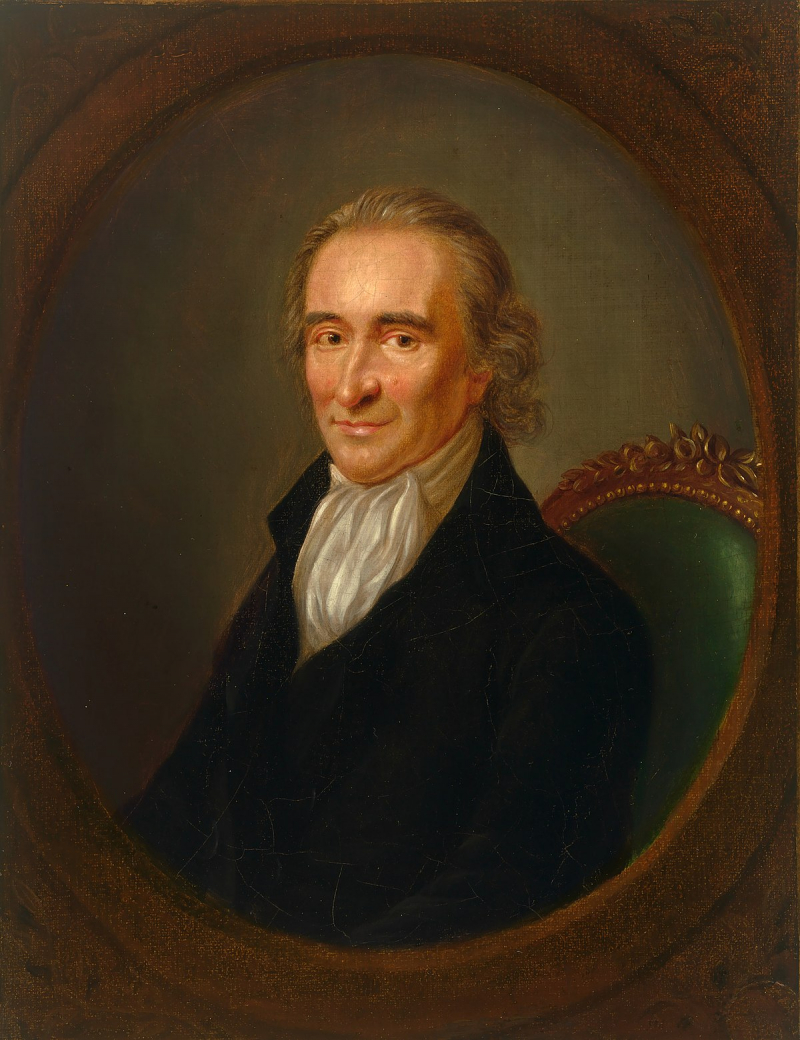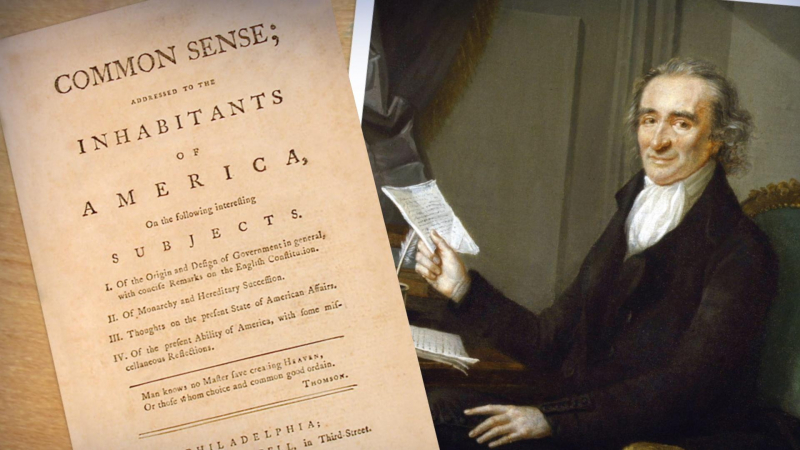Thomas Paine

Thomas Paine (1737-1809) was an English-American political activist and writer. In 1776, he published the best-selling booklet Common Sense, in which he campaigned for America's independence from Great Britain. It was extensively read and contributed to the spread of the idea of American independence. "Without the pen of the author of Common Sense, Washington's sword would have been lifted in vain," John Adams declared. Throughout his career (1776-83) he authored numerous essays promoting the revolution and republican ideas. He also backed the French Revolution and wrote the renowned book "Rights of Man" (1791).
Paine was born in Thetford to modest parents. He worked as an apprentice at his father's corset factory for a period. He then worked in an excise office in Grantham, Lincolnshire, and subsequently in Lewes, East Sussex. He married his first wife, Elizabeth Olive, in 1771. Tomas Paine grew increasingly involved in local political concerns at this time. He was a member of a local Vestry church, which collected taxes and tithes to help the needy. Paine became involved in a movement to improve working conditions for excise tax laborers in 1772. This resulted in his debut book, The Case of the Excise Officers. After being fired from his job and narrowly evading debtors jail by selling his household goods, Paine traveled to London and, after meeting and impressing Benjamin Franklin, traveled to America under Franklin's patronage.
Paine rose to prominence in America after publishing a revolutionary treatise called Common Sense. It was a plea for American independence based on the establishment of a just republican government. It became a best-seller and had a significant impact on the tone of the American independence movement. Paine's ideas were not novel, but he had the ability to popularize them through the use of simple but effective language. During the American Revolution, George Washington frequently read Paine's works (from his Crisis Pamphlet series) to inspire his troops.
Paine was granted honorary French citizenship and elected to the National Convention alongside George Washington and Benjamin Franklin. He was a staunch supporter of the French republic, but, to many people's astonishment, he opposed Louis XVI's death, suggesting that it would be better to exile him to the United States. The challenge for Paine began with Robespierre's rise to power. Paine and other Girondins were arrested and imprisoned in December 1793 as part of their increasingly oppressive dictatorship.
Paine's cell was marked for execution; only his poor health and a mix-up kept him from the guillotine. Paine was liberated with the fall of Robespierre; after becoming increasingly disillusioned with Napoleon's administration, Paine went to the United States at the invitation of President Jefferson.


























